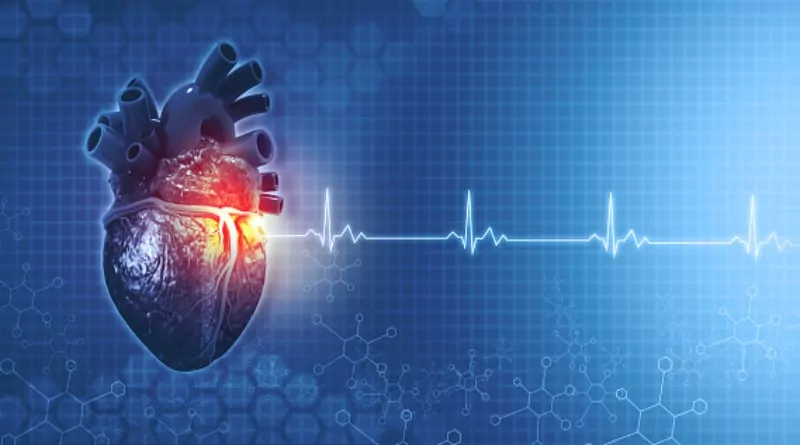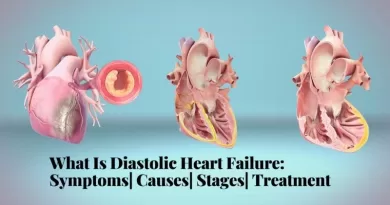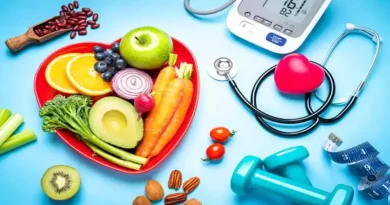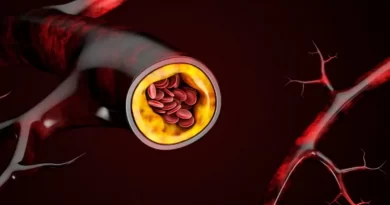Sudden Heartbeat Increase: Tachycardia Symptoms And Treatment
Table of Contents
Overview
A normal range of heartbeat for an adult person is 72-100 beats per minute. If it crosses 100 beats per minute then it can be a noticeable problem. In today’s life when everybody is so stressed, a sudden heartbeat increase can happen due to some anxiety and work pressure. But sometimes the problem is not just normal as it appears. If you continuously feel the same problem for many days it can be the starting of cardiac arrhythmia.
Before jump into any serious topic, you should know the fast heart rate causes. As some medical conditions, treatment, medications can be responsible for so.
- Anxiety issues or panic attacks.
- Low blood pressure or low sugar levels.
- Heavy exercises.
- High consumption of caffeine and nicotine.
- Menstruation or pregnancy.
What Does It Mean of Sudden Heartbeat Increase?
Tachycardia
Tachycardia is the medical term for a fast heart rate, usually above 100 beats per minute. Sometimes it’s normal to feel a fast heart rate like described earlier. But there are certain arrhythmias in which the heart rate is faster independent of any physiological reasons.
Sometimes tachycardia interferes in our normal heartbeat and can be fatal for life and cause some serious issues like:-
- Stroke
- Cardiac rest
- Heart attack or heart failure
How Would You Know You Have Tachycardia?
When your heart beats too fast, it means that your heart is not able to pump blood properly and it remains your organs abandoned of oxygen and leaves you with symptoms of short breath and fast heart rate.
Symptoms Of Tachycardia
- Shortness of breath.
- Chest pain.
- Rapid heartbeat.
- Vibrations in the chest and throat due to heart racing.
What Causes Tachycardia?
There are plenty of things that contribute to a fast heart rate. It causes some disturbance in electric impulses that controls our heartbeat and the pumping of blood.
Here are a few of them:-
- Hypertension(high blood pressure) or hypotension (low blood pressure).
- Loss of some electrolytes, necessary for conducting impulses.
- Consumption of too much alcohol.
- Low blood sugar.
- The side effect of some potent medications.
- Fear or stress.
- High intake of stimulants like cocaine.
- Diabetes
Heart’s Electrical System
To fully understand that what exactly happens while we breathe you need to understand the heart’s mechanism of conducting impulses.
Our heart has four chambers including 2 upper chambers called atriums, and 2 lower chambers called ventricles. Our right atrium consists of a natural pacemaker called the sinus node, which controls your heartbeat. The sinus node produces some electrical impulses that control your normal heartbeat.
That electrical impulse travels from the sinus node to the atria and letting the atrial muscles contract and pumping blood to lower chambers that are ventricles. These impulses then arrive at the atrioventricular node(AV), a cluster of cells, the only path for impulses to travel from atria to ventricles.
Before sending it to the ventricles, the AV node slows down the electrical impulses, and this slight delay allows the ventricles to be filled with blood. When these impulses reach the muscles of the ventricles, they contract and cause them to pump blood to the lungs and rest of the body.
When anything disturbs this mechanism it can cause the heart to beat too fast or too slow. When the heart beats faster than usual we call this condition tachycardia.
Diagnosis
When your symptoms resemble as described earlier then it’s time to consult a doctor and do your proper diagnosis. Diagnosis includes certain electric machines that will monitor your impulses.
ECG(electrocardiogram)
It is a painless diagnosis of your heart’s electrical activity with the help of sensors on your arms and chest. ECG records the strength and timing of electrical signals traveling through your heart. Portable ECG devices are also available which you can take home and check yourself.
Electrophysiological test
This test is used to find the exact cause in your heart circuitry. In this test, certain tubes tipped with electrodes are inserted into your arm, groin, neck that guide them through blood vessels to various parts in your heart. It provides a brief map of your heart activities and identification of each beat and every abnormality in it.
Cardiac imaging
It helps in the proper structural imaging of the heart, to check if any structural abnormality is contributing to tachycardia.
It includes:-
- Electrocardiogram:- it images your heart blood flow with the help of sound waves. Any poor blood flow or any muscle dysfunction can be identified with it.
- MRI:- it is magnetic resonance imaging in which the MRI machine uses magnetic and sound waves to create the imaging of internal organs.
- Chest x-ray:- chest x-ray is the initial diagnosis method in every case. It provides the image of any abnormality inside the heart like in coronary arteries or other blood vessels.
- CT scan:- computerized tomography is used to detect any risk of heart disease to the patient and also the abnormality in their blood vessels by creating a detailed investigation of the chest through x-rays.
Treatment
Fast heart rate treatment depends upon the type of tachycardia you have. Sometimes you feel a fast heart all of a sudden and you have to go through the causes list. If you find it serious still, then you should consult your doctor. There are various types of treatment your doctor may suggest to you. First of all, he can give you advice on avoiding caffeine and nicotine consumption, or in some conditions, an artificial pacemaker is inserted beneath your chest skin so that whenever it detects any abnormal heartbeat it sends some signals to the heart to resume the normal heartbeat.
Normal medications such as anti-arrhythmic drugs are given to the patient which includes the calcium channel blockers like amlodipine, diltiazem, nifedipine, verapamil, and some other drugs such as lidocaine, quinidine, procainamide is generally used in a pill form and can be given through intravenous route in any emergency conditions.
Or in some drastic conditions doctor will recommend immediate surgery. Surgery includes an open-heart surgery in which the extra electric pathway of electric impulses will be targeted to destroy.
Conclusion
A sudden heartbeat increase can be a sign of anxiety or distress. However, it can be a dangerous sign of tachycardia, if feels often. the disbalance in the electrical system of the heart can bring out such fast heartbeats. One should immediately consult a cardiologist if one feels such symptoms. It mostly affects patients with diabetes, hypertension, or maybe any distress. the treatment is possible and easy. Your doctor will advise you on some diagnostic tests and medicines too if needed.



